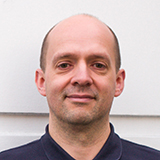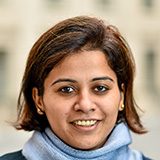There is this conventional wisdom that sits in the heads of most people working on climate change ... that we need to get people concerned and that will then lead to action ....Some people will buy into the scariness of the message and say this is really important. But just as often or maybe even more frequently it can lead to people switching off and turning away from the issue.
Dr Kris de Meyer
05 October 2021
WORLD: we got this podcast returns and takes on our inaction over climate change
King's academics discuss why we aren't doing more to tackle climate change and what action we can take as individuals and as society to help address the issue.

The WORLD: we got this podcast is returning for its third season with a new episode, released ahead of the 'COP26' climate summit, which explores why we aren’t doing more to tackle climate change.
Global warming is already affecting every country and continent on the planet, but our current level of action is falling short of what is needed to avoid the worst effects of climate change.
In this episode, produced by the Faculty of Social Science & Public Policy, we explore the reasons for our inaction over climate change with three different experts from King's. We hear their thoughts on why we aren't all doing more to tackle global warming, and what they think society, governments and individuals can do to help overcome current inaction.
Dr Kris de Meyer, of the Department of Geography and also of the Department of Neuroimaging in the Institute of Psychiatry, Psychology and Neuroscience at King’s, suggests a key factor is how we talk about climate change.
Dr James Porter, of the Department of Geography, highlights how the public and media response to heatwaves in the UK is usually positive, despite them actually causing 2556 excess deaths in 2020 in England. The problem is also not prioritised for funding, compared to something such as flooding, which claimed just 11 lives that same year in England.
Heatwaves remain an invisible risk for policymakers...they are aware of the risk, they're just not doing anything about it.
Dr James Porter
Dr Anshu Ogra, of the Department of Geography, explains how a community of coffee growers in India are living with the reality of climate change through variations in rainfall patterns and increased temperatures which are affecting their crops and livelihoods.
Yet she found they did not relate the term climate change with their own lives, as “weather” was the thing they experienced, leading to a gap between communities and policy-makers. She suggests people’s lived experiences should be given greater emphasis and included in the policy-making process.
Unless we make space for these lived experiences to emerge in the decision-making process ... it will appear as a distant western issue or other people's problem.
Dr Anshu Ogra
The academics each set out how they think we can increase action over climate change, including ways of holding those in power to account and changing the way we talk about the issue by using positive stories. Each also shares whether or not they feel hopeful for the future.
This season of the WORLD: we got this podcast is a partnership between the Faculty of Social Science & Public Policy and the School of Global Affairs and will feature a mixture of themed and 'In Conversation' episodes.



